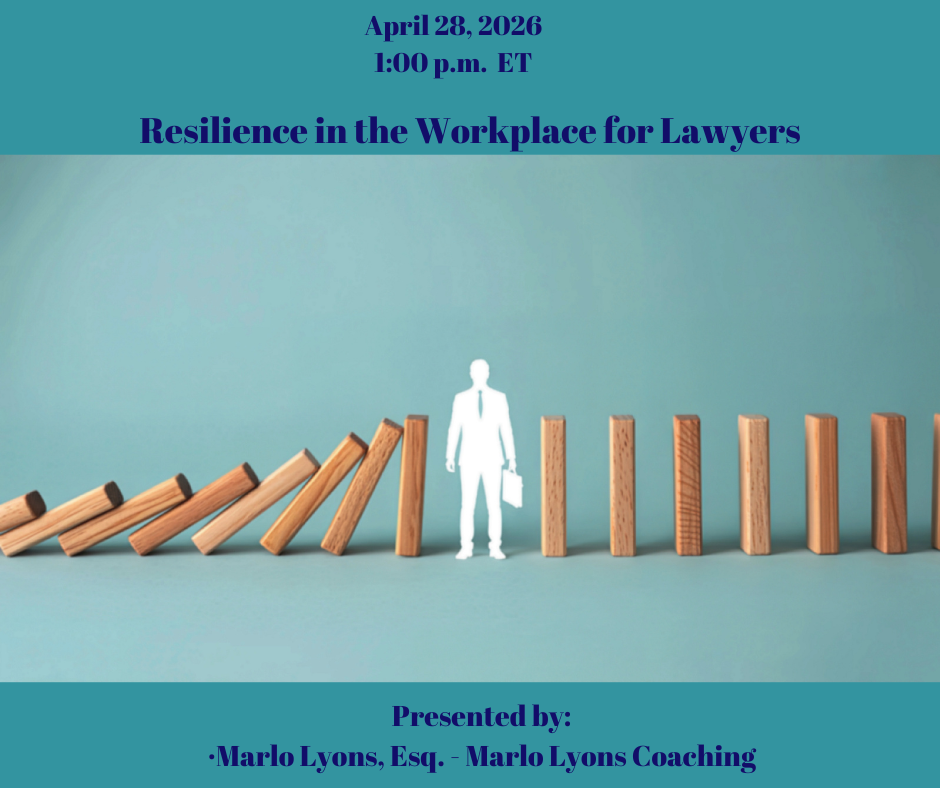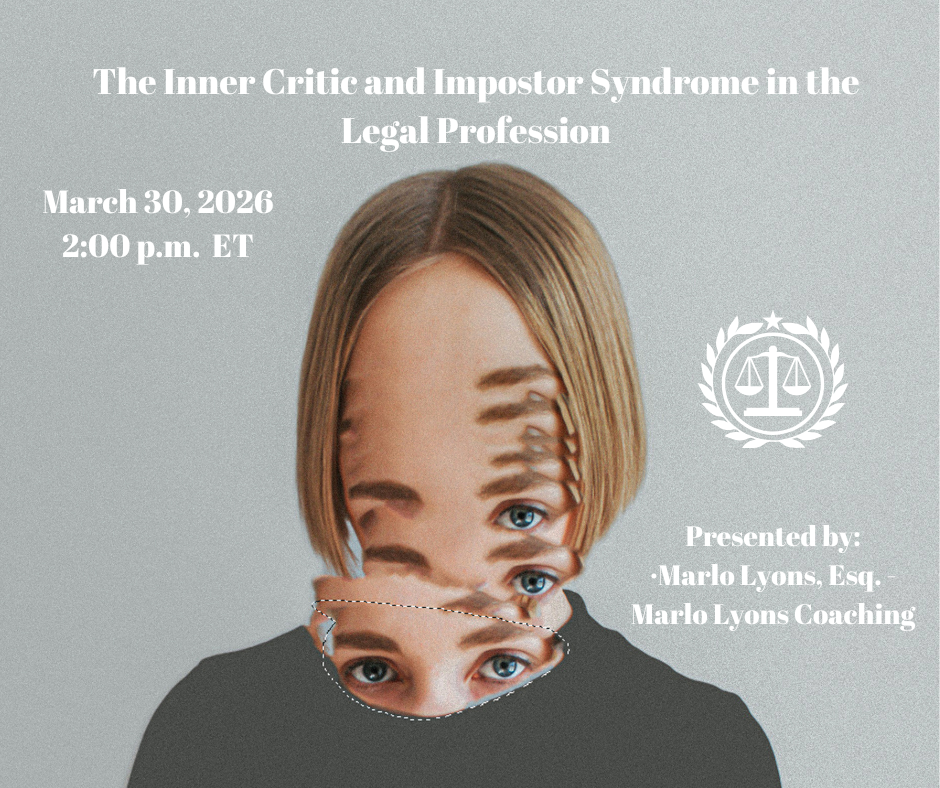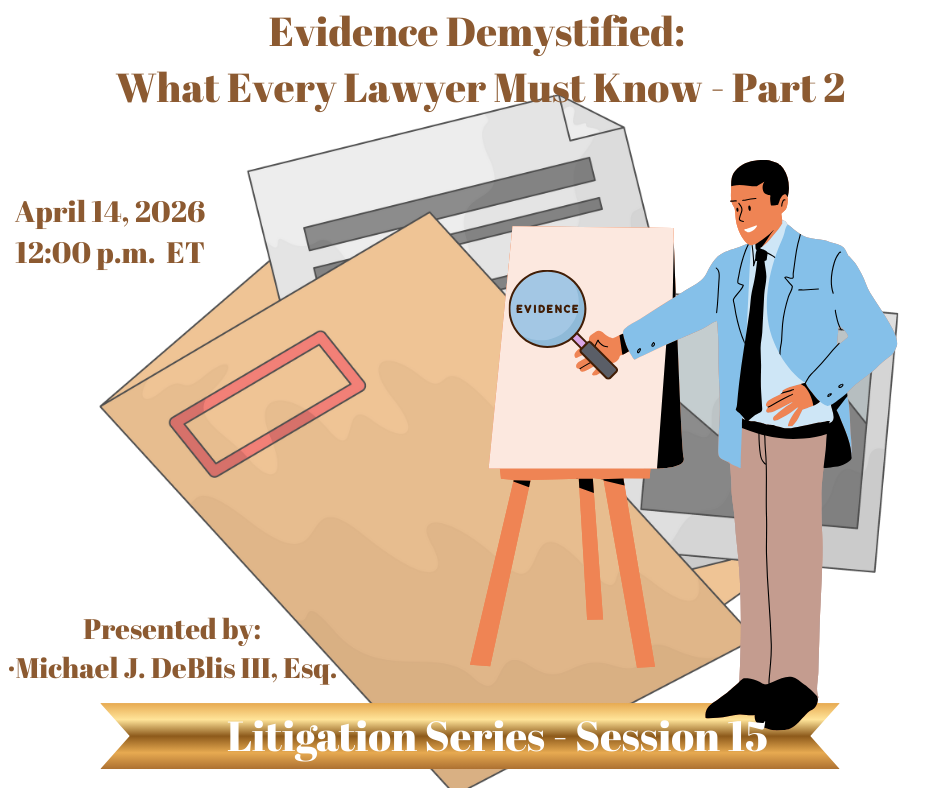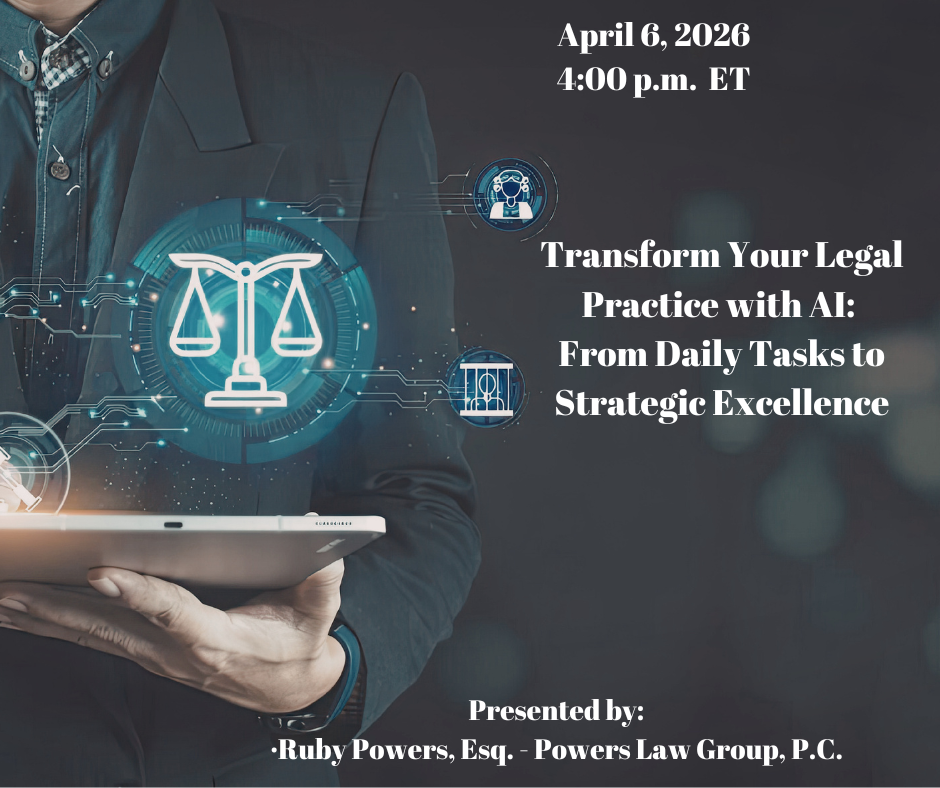
Exciting new series on “Voice, Body and Movement for Lawyers – How to connect with the jury and find Justice Through Dramatic Technique!”
Click here to find out more
Closing argument is a great persuasive device to help you win your case. It’s the most powerful part of the trial as it comes last and has the psychological advantage of recency. In addition, it is the only part of the trial which can be used without restrictions for setting forth relationships of facts and ideas, for emphasizing certain points, and for putting the case together in argument form. Join me as I reduce closing argument to its individual parts and teach you the tools for delivering strong and persuasive closing arguments that will leave a strong impression on the jury.

Resilience in the Workplace, delves into the critical importance of resilience in navigating the cha...

This CLE session introduces attorneys to budgeting and forecasting concepts used in corporate planni...

United States patent law and the United States Patent and Trademark Office’s patent-related gu...

In high-stakes, high-pressure environments like the legal field, even the most accomplished professi...

Evidence Demystified Part 2 covers key concepts in the law of evidence, focusing on witnesses, credi...

This course provides a strategic roadmap for attorneys to transition from administrative burnout to ...

This Shakespeare?inspired program illustrates how Shakespearean technique can enrich courtroom advoc...

Attorneys are judged every time they speak—in client meetings, depositions, hearings, negotiat...

This presentation provides an overview of copyright law particularly as it applies to music. The pre...

Learn about the latest trends in Federal Suspension and Debarments. This presentation will assist yo...